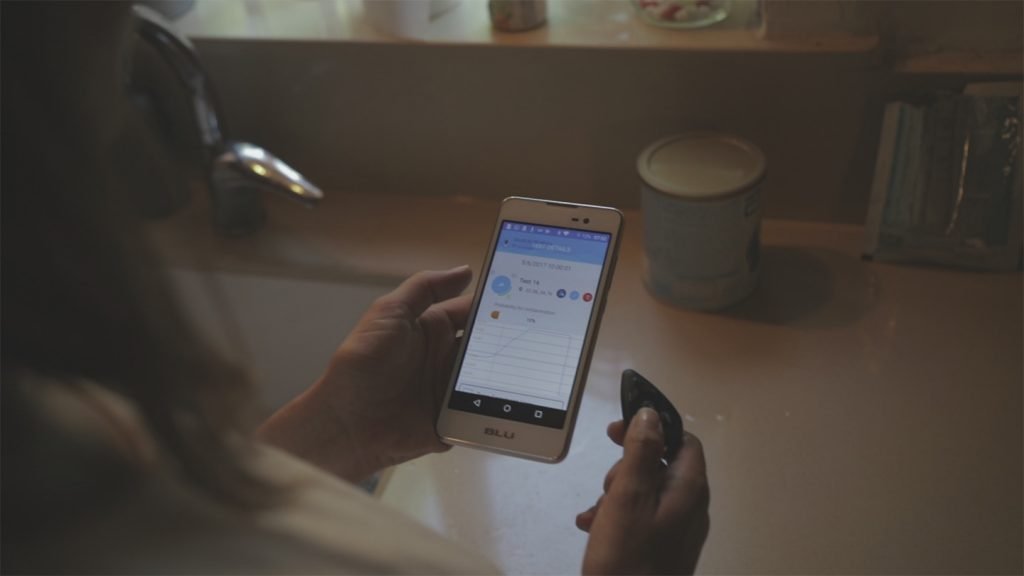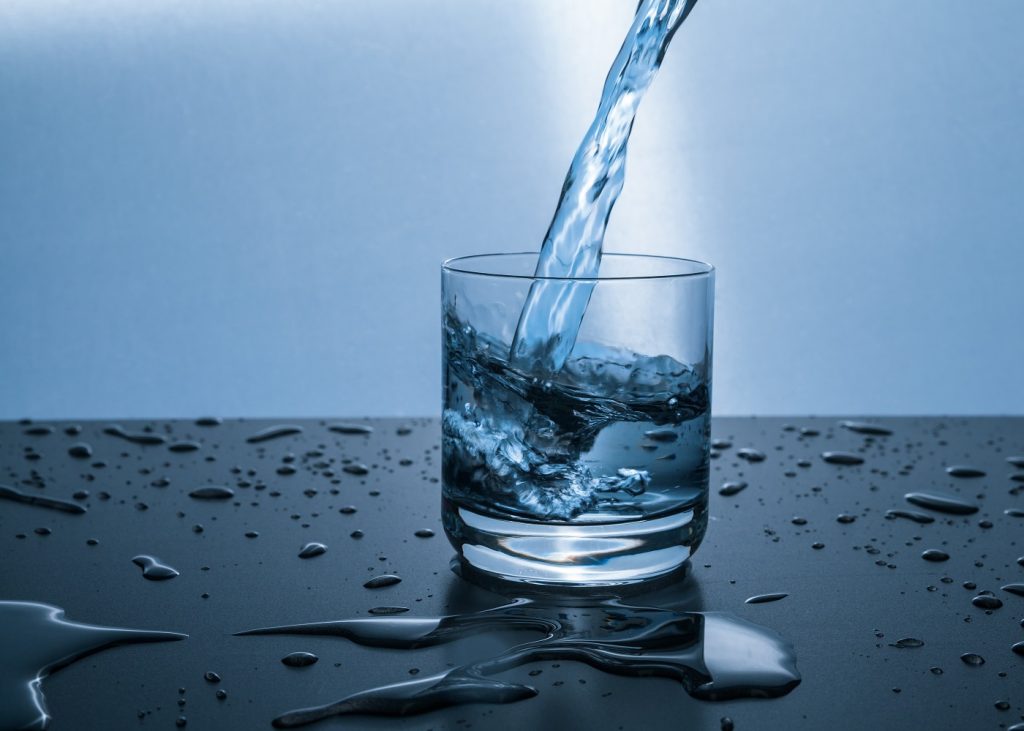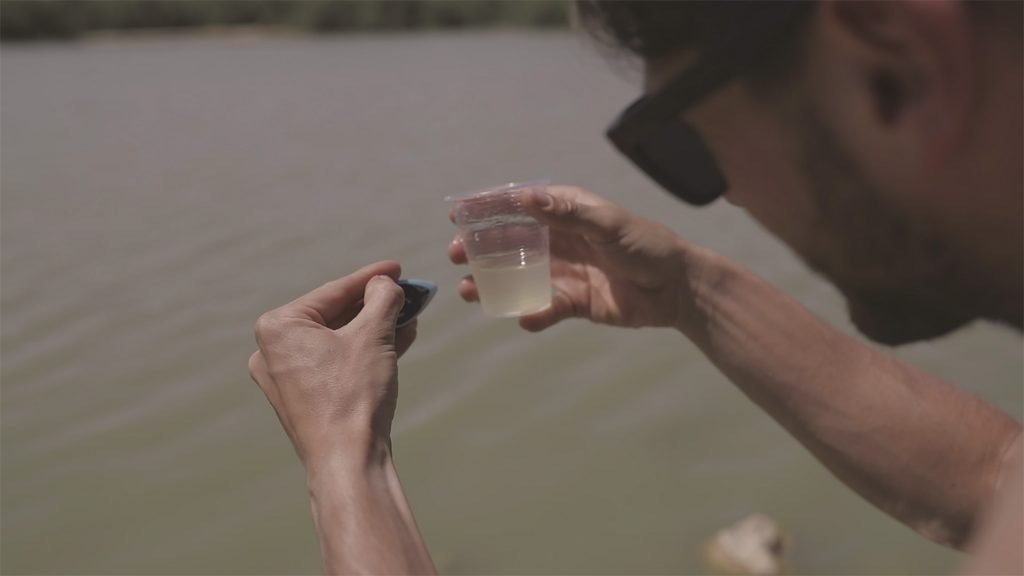Access to clean drinking water is a basic human right, according to a 2010 UN General Assembly resolution which states that every person has the right to safe, sufficient, accessible water for personal and domestic use. “The human right to water is indispensable for leading a life in human dignity,” and is “a prerequisite for the realization of other human rights,” says a 2002 document drafted by the UN Committee on Economic, Social and Cultural Rights.
But as of 2017, over two billion people worldwide lack access to safe drinking water according to the World Health Organization and an estimated 842,000 people die every year as a result of unsafe drinking water.
SEE ALSO: Desalination Nation: How Israel Is Helping The World Fight Water Shortage
What if there was an uncomplicated, relatively affordable way to quickly detect if the water is safe to consume? Israeli start-up Lishtot, which specializes in water technology, has just unveiled a new device that does exactly that.
Based in Jerusalem, Lishtot, Hebrew for “to drink,” builds products able to effectively and rapidly detect 20 different contaminants in drinking water – without ever touching it.
Founded in 2015 by Netanel Raisch and Dr. Alan Bauer, who also serve as the company’s CEO and Chief Scientist, respectively, Lishtot developed the TestDrop Pro, a keychain-like, handheld device embedded with a sensor that, when placed in close proximity to a cup of water, instantly determines whether water is safe to drink – no microfluidics or strips necessary. The device blinks blue if the water is safe and red if it’s contaminated.
How it works
Lishtot’s innovative and patented technology uses electric fields to pick up on any contamination in the water such as bacteria, pesticides, heavy metals and other toxins that create distortions intercepted by the sensors on the device. According to Lishtot, the technology is incredibly sensitive to any contaminants, even soap and saliva, yet simultaneously ignores the presence of soil or compounds such as magnesium or salt that are meant to be in clean water.
Like some of the world’s most revolutionary inventions, Raisch tells NoCamels that Lishtot’s technology was developed following an accidental discovery by Dr. Bauer.
“Alan discovered a phenomenon, that an electric field can actually be measured in a way it has never been measured before,” Raisch says. “We’ve developed state-of-the-art sensors that can detect changes in electric fields,” he explains, adding that Lishtot’s sensor is “the only sensor that detects water quality with passive detection, meaning we receive signals, we don’t send anything out.”
The TestDrop Pro developed by Lishtot is also incredibly fast, taking only a few seconds to test the water and provide immediate results. In the world of science, this is basically instantaneous when compared to other tests, such as plating for E.coli, which can take about a day for results.
“Up until now, if you wanted to test your water, you would need to send it to a lab and wait a few days for a response. What we developed is the first device in the world that gives people the ability to test the water they are going to drink – right now,” Raisch tells NoCamels.
Water and data
Sign up for our free weekly newsletter
SubscribeLishtot also developed the Lishtot App, which allows users to report problems to utility companies and search, based on location, for data about any contamination events, as well as add videos, images, comments, and access their testing history.
“We want to create a platform for drinking water quality data and information like nothing that exists today,” Raisch says. “People have no idea what’s in their water and it’s the second most essential resource that nearly everyone on the planet pays for in one way or another. We think people deserve to know more about the water they drink and we hope to cement Lishtot as the place everyone goes for info about their water.”

The Lishtot App. Courtesy
Raisch believes that the “data will eventually be the most valuable aspect of the company,” and says Lishtot is “already starting to work with governments, utilities, and some beverage companies and appliance companies at integrating our technology into their products or working to provide them with data to spot problems before they become disasters.”
One recent disaster that comes to mind is the water crisis in Flint, Michigan where residents were exposed to water containing dangerous levels of lead after the drinking water source was changed from treated water to the Flint River. With potentially serious health problems on the horizon, federal authorities were forced to declare a state of emergency and instruct residents to consume filtered or bottled water until all lead pipes could be changed.
Raisch says it’s a situation like the Flint water crisis “that we think could be avoided if our devices were in people’s hands. That problem would’ve been spotted way sooner and perhaps a lot of this could have been avoided.”
Later this year, Lishtot plans to release its next-generation product, the TeStraw, a pen-shaped device that will give users an accurate indication of exactly what types of contaminants are in the water sample, as well as the specific concentration level. The product is in commercial development, Lishtot tells NoCamels.
Another upcoming device is the TestPipe, an advanced water-monitoring product that checks the quality of tap water in residential homes. Currently undergoing further development and research, the TestPipe is set to fit easily under any sink and connect to a LED-light display on the kitchen faucet that, at any given moment, makes sure the tap water is not contaminated. Not only will this device provide water quality monitoring at all times, it will also give governments and municipalities the ability to learn information about water in certain neighborhoods, Lishtot indicates.
An award-winning startup
With a price tag of $49.95 per TestDrop Pro, the device may be out of reach in the mass market in developing countries, but Lishtot’s target markets currently are the United States, followed by China and India, Raisch says.
Earlier this month, Lishtot snagged first place at the Startup Night competition at the CES 2018 annual conference, the largest tech and innovation tradeshow of its kind, in Las Vegas. Up against 15 other companies, Raisch showcased the technology by testing two cups filled with water, one of which was contaminated. He held the device, and while pressing the test button, simply moved the TestDrop Pro towards one of the cups and then the other.
SEE ALSO: Extracting Water From Air, Israeli Company Water-Gen Looks To Quench Global Thirst
Lishtot was also among 18 Israeli companies selected earlier this month for the India-Israel Innovation Challenge, which supports Indian and Israeli entrepreneurs in partnering for digital health, agriculture and water technology solutions in India. Riasch flew to India with Prime Minister Benjamin Netanyahu to represent the company and its principles.
“We have come up with a product that can tell about 50 million people in India, for example, whether or not they can trust their water filtration system. This is big in so many ways,” he says.
Related posts

Editors’ & Readers’ Choice: 10 Favorite NoCamels Articles

Forward Facing: What Does The Future Hold For Israeli High-Tech?

Impact Innovation: Israeli Startups That Could Shape Our Future






Facebook comments